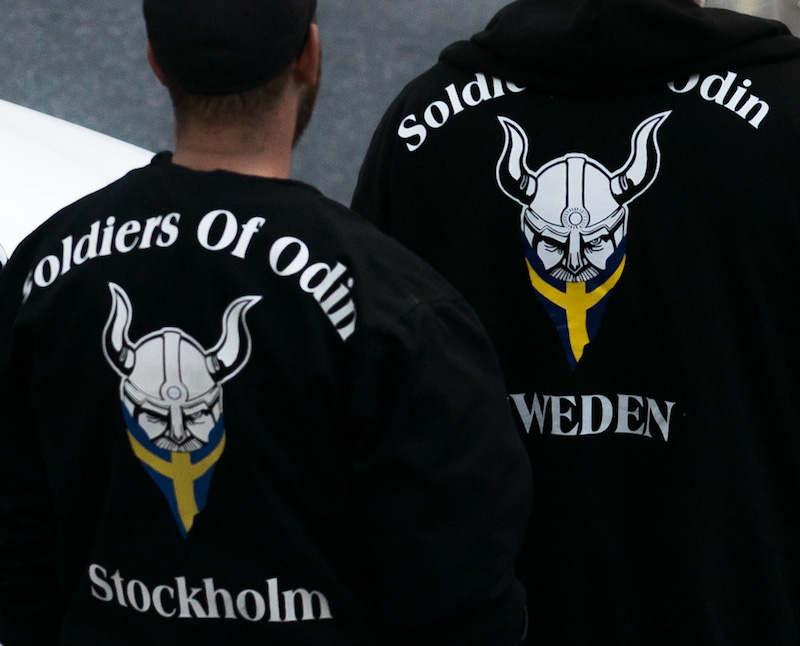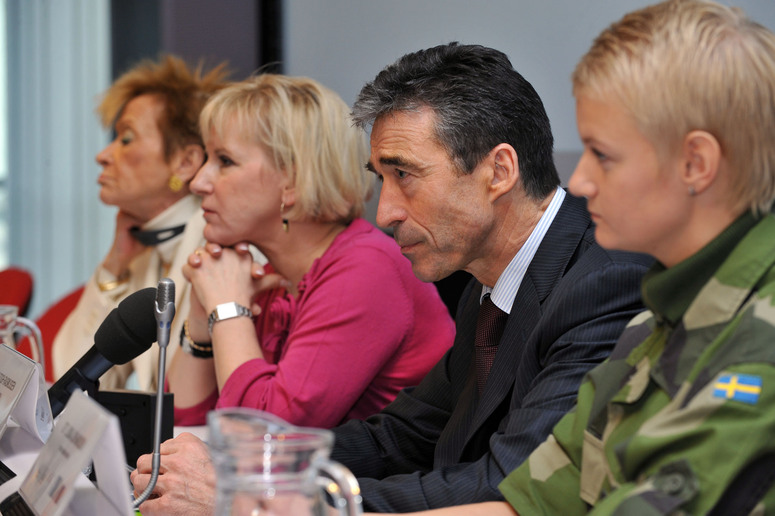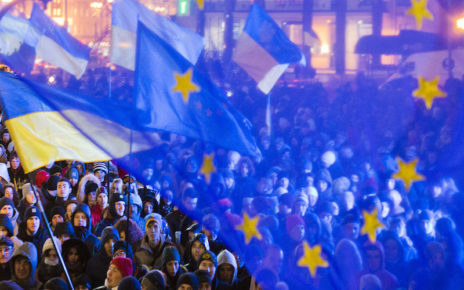After over a decade of discussion on political extremism focused on Islam, the summer of 2015 saw a number of events – legislation to set up a referendum on ‘Brexit’, the Charleston church shooting and Donald Trump’s promise to build a wall – place greater media attention on the far right. There has been much debate regarding the rise of the far right, as pundits contend whether its rise is temporary and whether it is a consequence of racial fears or economic anxiety. Despite this debate, there is one area of agreement in the media: Canada, unlike Europe and the United States, has avoided the rise of a far right. A month prior to the election of Donald Trump, the front page of The Economist was Liberty Moves North: Canada’s Example To The World; after Donald Trump’s victory, the Washington Post published an article titled Why The Global Populist Wave Hasn’t Hit Canada; over the past several months The New York Times has run articles promoting Canada’s tolerance, such as Canada’s Secret to Resisting the West’s Populist Wave and Canada, Leading the Free World.
The idea of Canada as a bastion of tolerance – a post-racial multicultural utopia, – often perpetuated by mainstream media, is a myth. Examples abound of cases of far right violence, including numerous acts of arson against mosques in Peterborough, Hamilton and Toronto, while various threats have been made against Jewish community centres in places such as London, Toronto and Vancouver. These acts are not isolated incidences, but part of a growing trend. In 2015, hate crimes against Muslims grew 60%, while Jewish people remain the largest target. These acts are not incidents on the fringe, but reflect broader social attitudes. A University of Toronto study found that 1 in 5 Canadians want to end all immigration, 30% favour discrimination against Muslims in the immigration process, and 24% support halting all Syrian refugees from entering the country. Regarding attitudes towards Jewish people, 32% agreed with the statement “Jews are more loyal to Israel than to this country”, 20% with “Jews think they are better than other people” and 26% with “people hate Jews because of the way Jews behave”.
Such figures are shocking. Perhaps more disconcerting is how the far right has increasingly developed inroads into mainstream politics. In December 2016, Liberal MP Iqra Khalid tabled a parliamentary motion condemning Islamophobia. The motion passed despite intense opposition from the Conservative Party. During the Conservative leadership convention, candidate Kellie Leitch played off xenophobic fears by promising to screen immigrants for Canadian values and delivered a speech to an Islamophobic group, Rise Canada, which proposed “a permanent ban on all Muslim immigrants PLUS [sic] mass deportation of existing Muslims.” Of increasing concern is the role the far right website The Rebel is playing in the Conservative Party. The Rebel publishes xenophobic and Islamophobic content, but has also catered to neo-Nazis with inflammatory videos such as Ten Things I Hate About Jews. The Rebel has hosted conferences attended by politicians such as Toronto mayoral candidate Doug Ford, and Conservative leadership candidates Chris Alexander, Pierre Lemieux, Kellie Leitch and Brad Trost. Conservative leader Andrew Scheer has done one-on-one interviews with The Rebel and had Hamish Marshall, one of the directors of The Rebel, as his campaign manager.
If Canada fails to address the far right it risks failing to ensure its security. On January 29th, 2017 white nationalist Alexandre Bissonnette went into a mosque in Quebec City and shot six dead. The shooting was Canada’s deadliest in nearly 30 years. No acts of violence on this level have occurred since, but groups such as the neo-Nazi group Soldiers of Odin and the Islamophobic group the Three Percent have openly declared their preparation to use violence “when necessary”. If the far right is not taken seriously and is instead treated as a fringe phenomenon it is only a matter of time before another act of violence occurs.
A number of actions can be taken to address the threat. First, online harassment must be taken more seriously by law enforcement, since such apathetic expressions of violence may be an indicator of future acts of physical violence. Second, is the role of the media. Instead of censorship the media at the very least must be conscientious of the deadly consequences of fear mongering. When far right personalities are given a public platform, the media should ensure that they are ready to debunk false claims, rather than leave them to stand. Finally, education is critical. Canada has a lot to be proud of – it is one of the first countries to legalize same-sex marriage, it accepted roughly 40,000 Syrian refugees, and has proposed legislation protecting transgender people. Yet, Canada also suffers from a lack of knowledge of its relationship with indigenous peoples, LGBTQIA+ persons, and people of colour. Education should be used as a tool to educate Canadians on injustices within this country – it is for this reason it is so strongly advocated by the Truth and Reconciliation Commission. The irony is that if Canada blinds itself to the myth of being a tolerant utopia, it risks falling victim to the forces of bigotry.
Photo: Soldiers of Odin in Stockholm (2016) via Wikimedia Commons. CC BY-SA 4.0.
Disclaimer: Any views or opinions expressed in articles are solely those of the authors and do not necessarily represent the views of the NATO Association of Canada.




